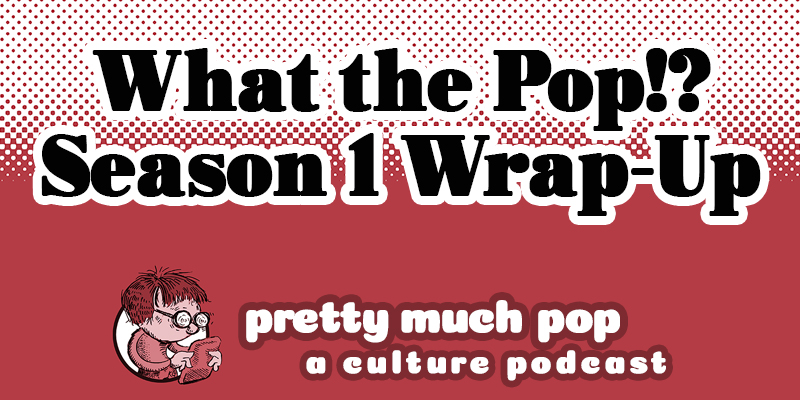
After 101 episodes and a bit over two years, OpenCulture’s first podcast offering is moving into a new phase. Here your hosts Mark Linsenmayer, Erica Spyres, and Brian hirt reflect on what we’ve learned and set a course for the future.
Our overarching concern with this podcast has been how and why we consume. We may not have learned a great deal about this issue in a general sense, but we’ve certainly been shown the appeal of many forms that we might not have considered before, and we’ve theorized about why people like drama or horror, or what makes for compelling sci-fi or gaming, etc.
We’ve stretched over these episodes into some unexpected areas for a pop culture podcast, like the philosophy of photography and why people obsess over conspiracy theories. The current discussion takes this on through a re-consideration of what pop culture is. Of course, the title of the podcast has “pretty much” in it, which allows a certain amount of leeway, but the source of that ambiguity is not just that I want the freedom to bring in any topic that interests me, but because of two points covered in this episode:
- Functionally, individuals entertain themselves with a variety of things; they are our cultural food, and can include many obsessions that have nothing to do with manufactured media at all. If such fascinations are also used by multiple people to bond over, then that’s culture, and insofar as bonding over that object is common, then it’s pop culture.
- There’s a continuum between creation and spectating. Creators are first of all consumers and create largely through imitating and tweaking past works. Though this podcast focuses largely on the consumer side of the equation, some of audience appreciation is a matter of respect for the craft, which increases through understanding and (at least vicarious) participation in the activity. Though it’s not always the case that we get enjoyment through sympathy with the artistic choices a creator makes (sometimes we just marvel uncomprehendingly), this is a significant dynamic in fandom. Viewers who liked Game of Thrones had many ideas about how it should have ended even if they had no opportunity or even talent to really provide an alternative.
It all comes down to the dimensions of mimesis, which means reflection. We enjoy storytelling largely because it reflects us, either how we are, how we might like to be, or how we fear we could be. We get some of our ideas about who we are from these media reflections. Marketers guess at who they think we are (again, in part based on media) and create products to market at us. Artists create works reflected from other works which attempt to reflect us (or distort us based on knowledge of a reflection). Who we are as a culture may be very much storytelling all the way down. So political myths are an essential part of this, as are sexual mores, ideas about what leisure activities (and jobs, for that matter) are respectable, manners taken more generally, how we deal with our legacies of racism and sexism, what we find funny and how that changes over time, and much much more.
Thanks, all, for listening. We’ll be back in a few weeks.
This episode includes bonus discussion you can access by supporting the podcast at patreon.com/prettymuchpop.
This podcast is part of the Partially Examined Life podcast network.
Pretty Much Pop: A Culture Podcast is the first podcast curated by Open Culture. Browse all Pretty Much Pop posts.


Leave a Reply